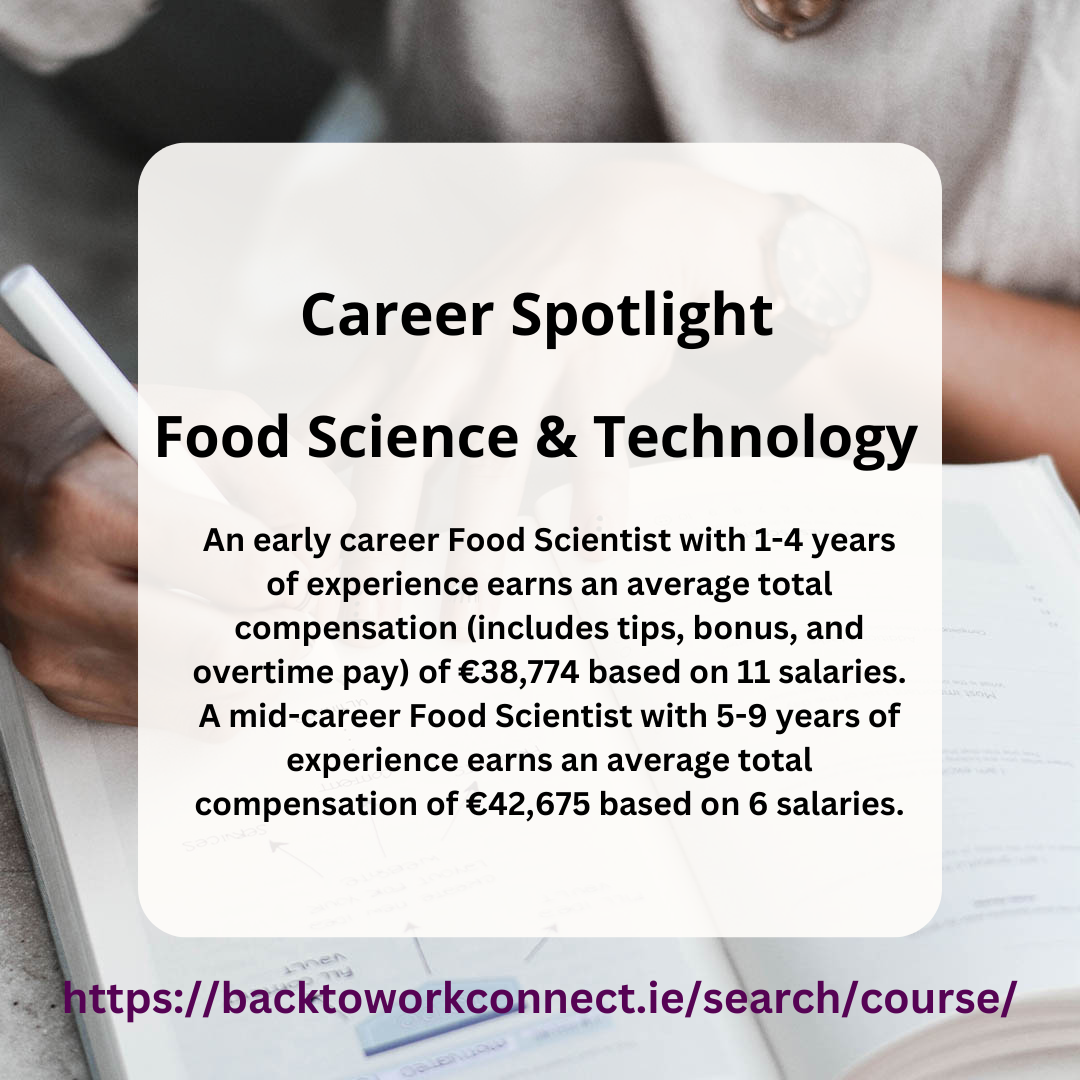Working in food science requires a diverse set of skills to understand, develop, and improve food products. Here’s a short description of the key skills required:
- Scientific Knowledge: A strong foundation in biology, chemistry, and physics is essential for understanding the chemical and physical properties of food.
- Food Safety: Knowledge of food safety regulations and practices is crucial to ensure that food products are safe for consumption.
- Analytical Skills: Proficiency in laboratory techniques and data analysis is necessary for testing and evaluating food samples.
- Sensory Evaluation: The ability to assess the taste, smell, texture, and appearance of food products is vital for quality control and product development.
- Nutrition Knowledge: Understanding the nutritional content of foods and how it relates to human health is important, especially for labeling and product development.
- Food Processing: Knowledge of various food processing techniques, such as canning, freezing, and drying, is essential for preserving and packaging food products.
- Microbiology: Understanding food microbiology is important for preventing foodborne illnesses and ensuring the safety of perishable foods.
- Product Development: Creativity and innovation are key for developing new food products that meet consumer demands and market trends.
- Quality Assurance: Implementing and maintaining quality control systems to ensure consistent product quality and compliance with industry standards.
- Communication: Effective communication skills are essential for collaborating with cross-functional teams, presenting research findings, and interacting with regulatory agencies.
- Problem-Solving: The ability to troubleshoot issues related to food production, quality, and safety is crucial in this field.
- Project Management: Managing research projects, timelines, and budgets is important, especially in roles involving product development and research.
- Adaptability: The food industry is constantly evolving, so being adaptable and open to learning about new technologies and trends is essential.
- Ethical Awareness: Understanding and adhering to ethical considerations in food production, such as sustainability and responsible sourcing, is increasingly important.
- Business Acumen: In some roles, knowledge of business principles, marketing, and consumer behavior can be valuable for product development and marketing strategies.
Combining these skills with a passion for food science can lead to a rewarding career in the food industry, whether in research, quality control, product development, or regulatory compliance.
| Finding the right course that supports your career goals is vital. To make your search that bit easier, we’ve compiled a list of some fantastic courses in Ireland to consider. |
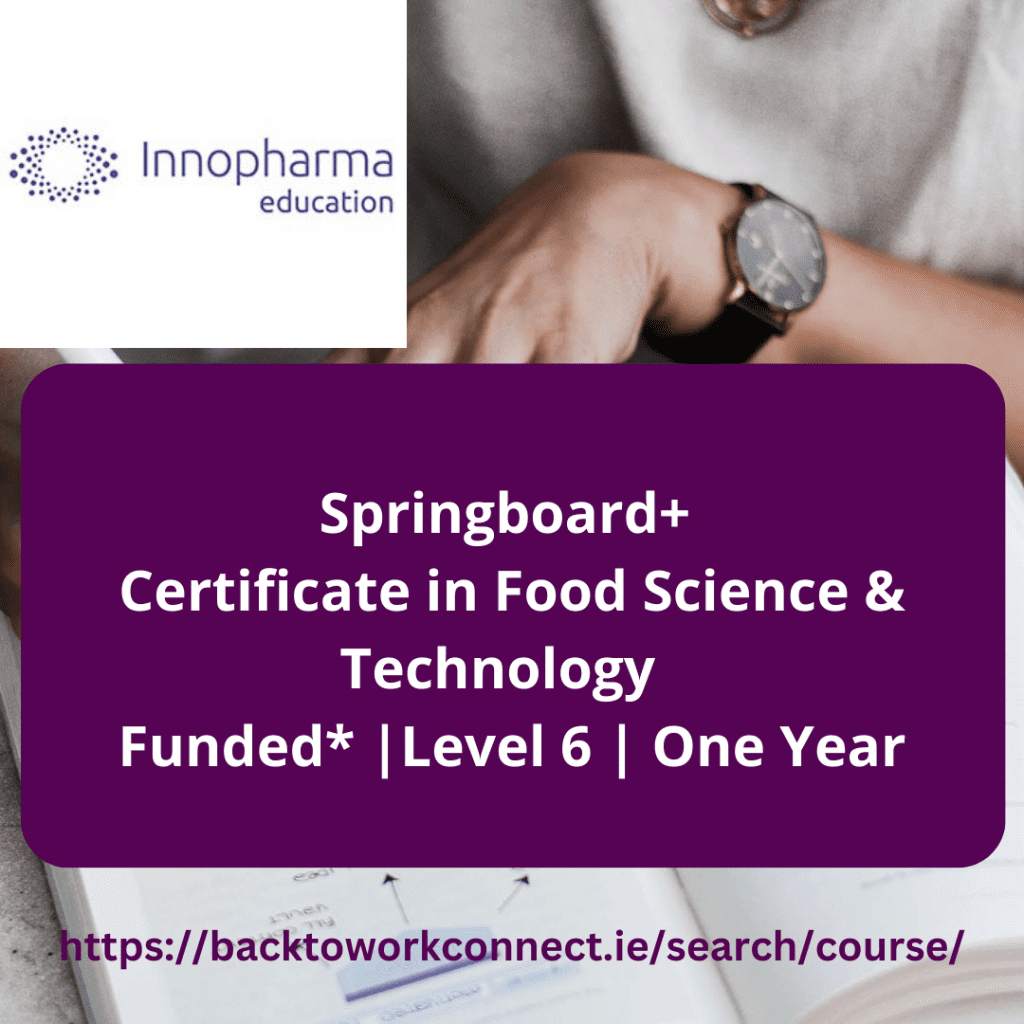
Innopharma Education
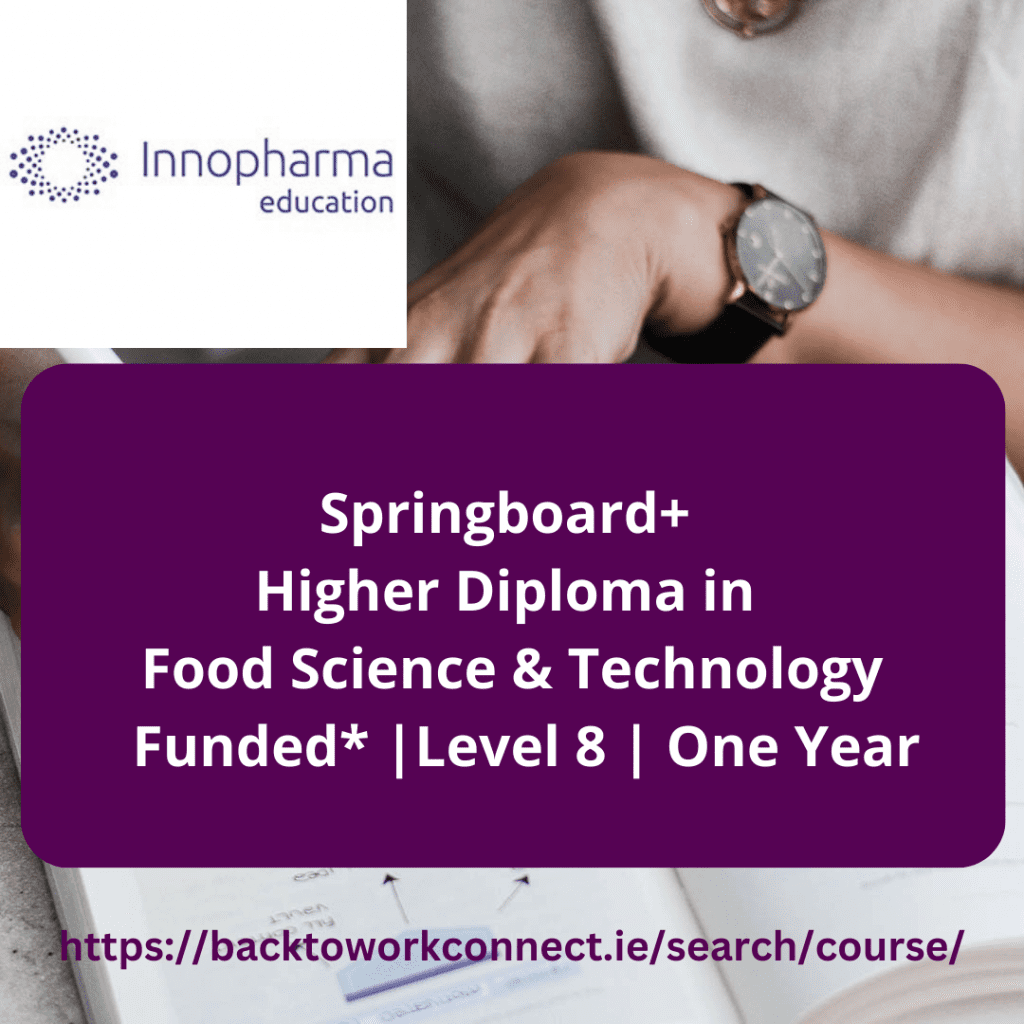
Innopharma Education
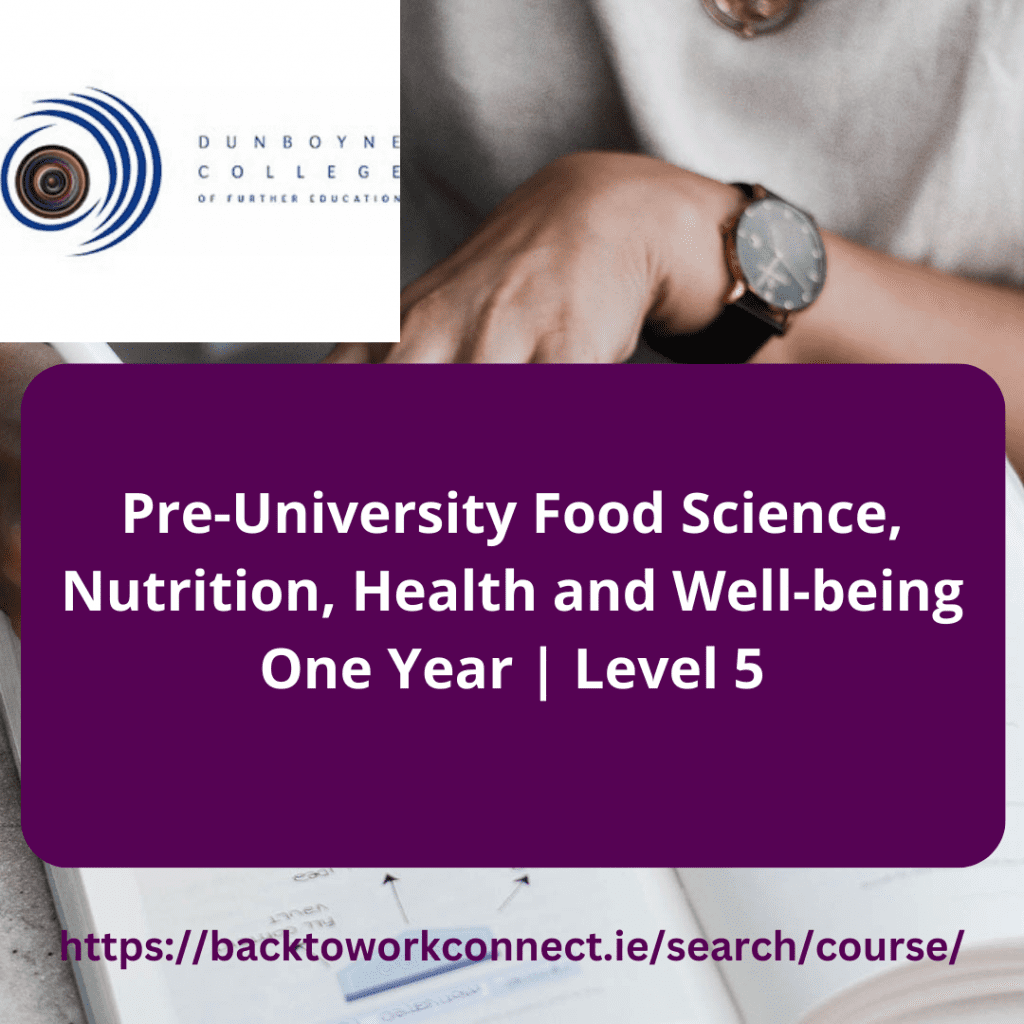
Dunboyne College of Further Education
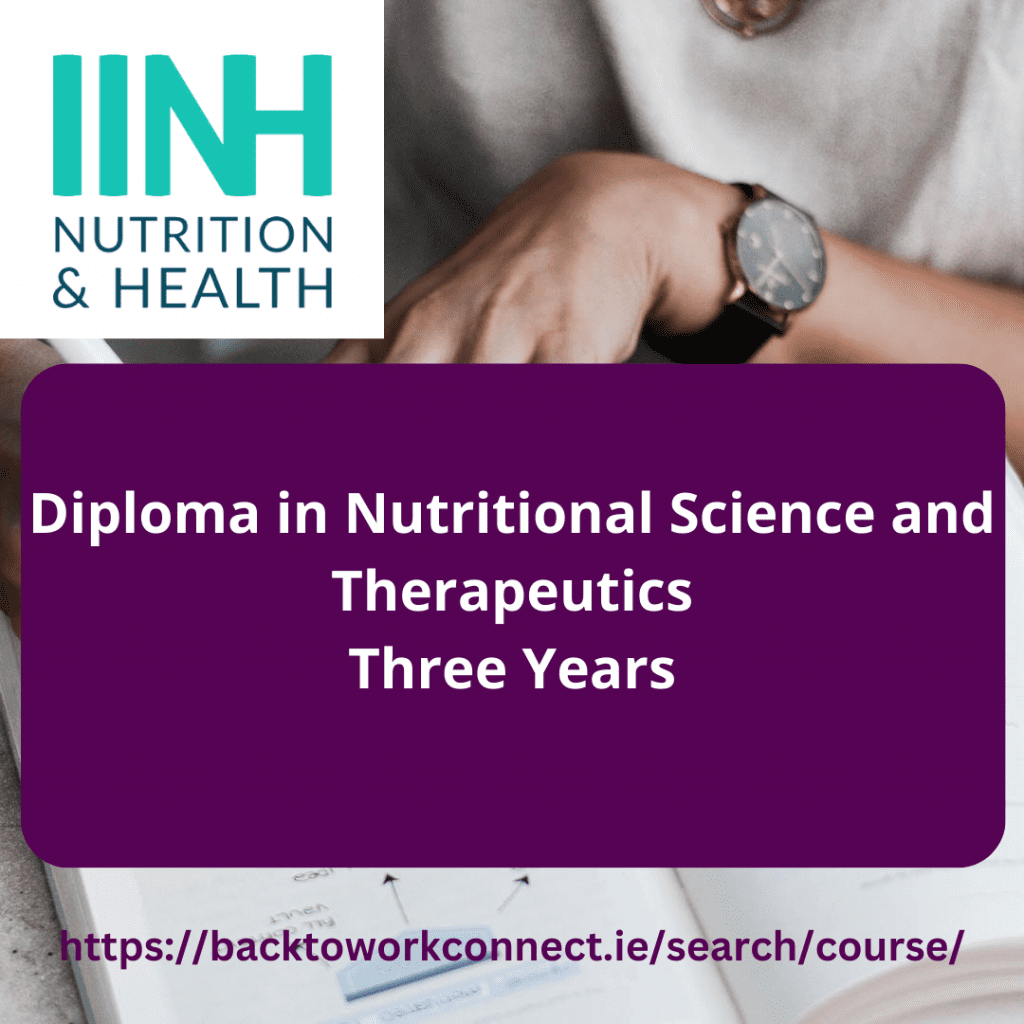
IINH
